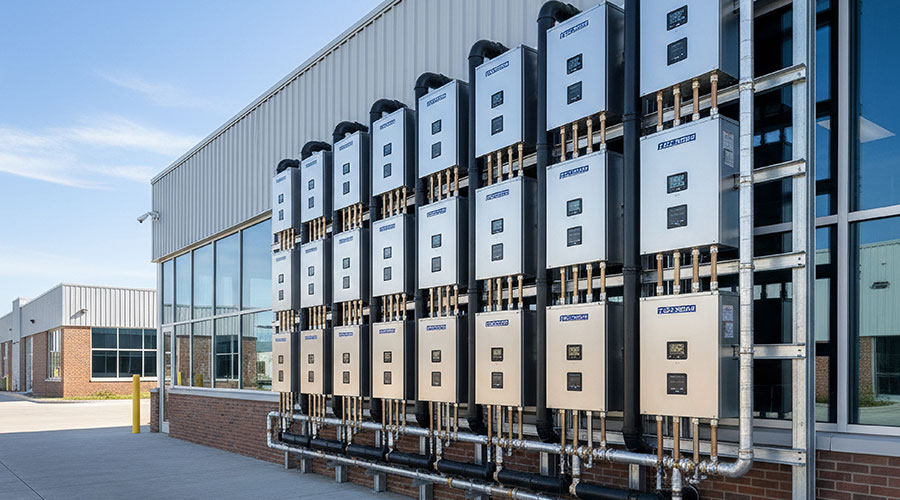Harvard Adopts Six New Sustainability Principles
Harvard University has announced a set of principles designed to ensure sustainable growth and advance Harvard's record as a responsible environmental steward.
Harvard University has announced a set of principles designed to ensure sustainable growth and advance Harvard's record as a responsible environmental steward.
The new university policy, reflected in six sustainability principles for campus planning and operations, commits Harvard to developing new green campus buildings and promoting and rigorously monitoring sustainable practices in all campus operations. The principles also build on Harvard's established leadership in environmental awareness, education, and action. For example, Harvard has applied new green building standards to recent projects, is the third largest university purchaser of renewable energy in the nation, and has seen conservation and environmental education campaigns cut energy consumption in campus dormitories by 10 to 12 percent over the last year and a half.
The announcement comes at a time when Massachusetts and communities in the Greater Boston region are emerging as national leaders in environmental sustainability, with state and city agencies advocating for the protection of the environment through smart growth, the prudent use of natural resources, and caps on greenhouse gas emissions. Universities can be valuable participants in such regional and national environmental efforts.
The new University Sustainability Principles commit Harvard to:
* Demonstrating institutional practices that promote sustainability, including measures to increase efficiency and use of renewable resources and to decrease production of waste and hazardous materials, both in Harvard's own operations and those of its suppliers
* Promoting health, productivity and safety of the university community through design and maintenance of the built environment
* Enhancing the health of campus ecosystems and increasing the diversity of native species
* Developing planning tools to enable comparative analysis of sustainability implications and to support long-term economic, environmental, and socially responsible decision-making
* Encouraging environmental inquiry and institutional learning throughout the university community
* Establishing indicators for sustainability that will enable monitoring, reporting and continuous improvement.
As a part of early implementation, a sustainability consultant will be working with Cooper Robertson & Partners as they develop guidelines for future development of the Allston area of Harvard's campus. In addition, Harvard expects to incorporate the principles into campus operations to pursue gains in energy conservation and efficiency. An advisory committee with student, faculty and administration representation will monitor the implementation of the university-wide effort.
Harvard's sustainability principles build on the university’s burgeoning green leadership, through which hundreds of environmentally responsible campus initiatives have been trialed, resulting in the following advances:
* The Harvard Green Campus Initiative's Loan Fund has offered more than $2,800,000 to date to facilitate 32 projects that promote energy and water conservation strategies and methods on the Harvard campus. On average, these projects have generated enough financial savings to pay back the loan in just three years.
* Energy consumption in college dorms decreased by at least 10 percent over the past year and a half as a result of environmental education and student participation in energy-saving practices.
* In spring 2003, Harvard opened its own bio-diesel fueling station in Allston, which provides bio-diesel, a cleaner-burning fuel made from soybean oil, for Harvard's entire fleet of diesel vehicles, including student shuttle buses.
* Harvard's recycling program has engaged the student body and administrative departments in a range of recycling efforts over the past decade and diverts approximately 40 percent of Harvard's trash from city dumps each month.
* One Western Avenue Graduate Student Residence has recently been awarded a silver Leadership in Energy and Environmental Design (LEED) certification. LEED certification is pending on two additional projects, 60 Oxford and the restoration of Landmark at the School of Public Health.
* Harvard is currently the third largest university purchaser of renewable energy (wind power) in the nation.
* Harvard formed the Harvard Green Campus Initiative in 2001 to directly support all faculties and departments in achieving cost-effective, environmental impact reductions associated with procurement practice, utility supply and consumption (energy, water, etc), campus planning, landscaping, building design and operations, transportation, and waste management.
To learn more about Harvard's commitment to campus environmental sustainability, see http://www.greencampus.harvard.edu.
Related Topics:











